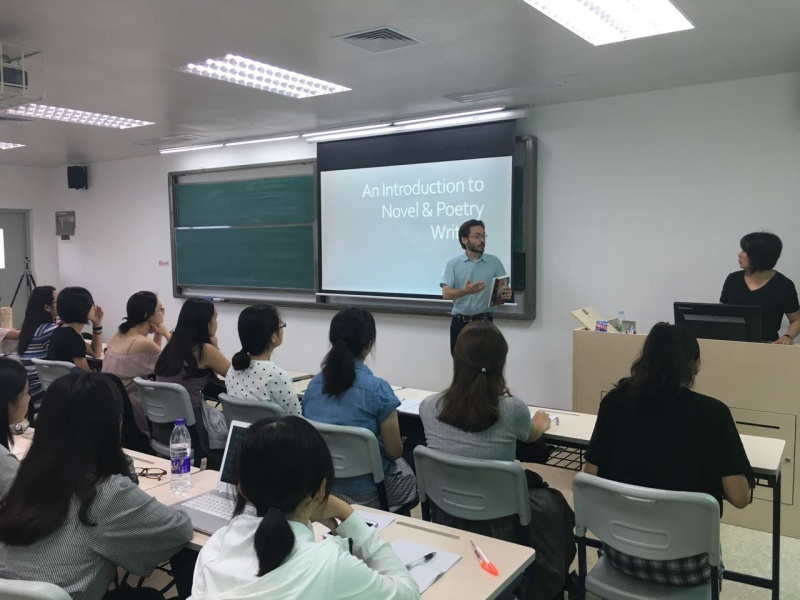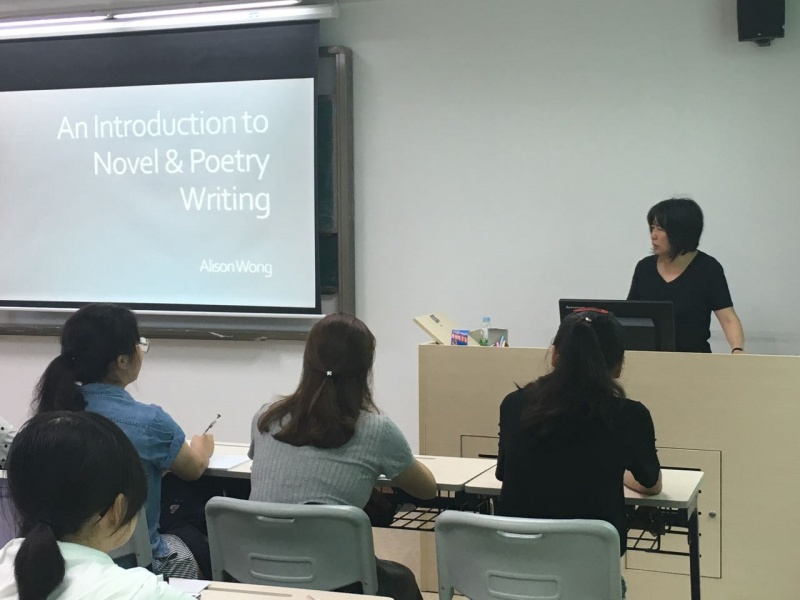ALISON WONG GIVES SYSU FRESHMEN A GLIMPSE INTO THE NOVELIST’S CRAFT
By Austin Woerner
Alison Wong, a fourth-generation Chinese-New Zealander whose novel As the Earth Turns Silver won the 2010 New Zealand Post Book Award for Fiction, spoke to students on Monday Nov. 7 about the novelist’s craft: what it takes to write a novel, how she went about writing hers, and how they, if they want to, might tackle the task of writing their own.
The event, part of the 2016 Sun Yat-sen University Writers’ Residency, took place on SYSU’s Zhuhai campus, and was attended by almost fifty freshmen from the SYSU English Department. For the students, who will take their first creative writing class next year as sophomores, the lecture was a taste of things to come.
Wong, who has also won acclaim as a poet for her poetry collection Cup, spent roughly a decade researching and writing As the Earth Turns Silver, a work of historical fiction novel set in early twentieth-century New Zealand that centers on a romance between a white woman and a Chinese immigrant. The germ of the story, Wong told students, lay in two family mysteries. Her great-grandfather, who emigrated from Guangdong province, was bludgeoned to death in New Zealand. And he was also rumored to have had an affair with a white woman.
No link between the two incidents was ever established. But it got Wong thinking, and the narrative she spins in As the Earth Turns Silver explores the complexities of race in New Zealand in a time when tensions between Chinese and settlers of European descent were high, and when love between the two groups was, for many, an unthinkable transgression.
Novel-writing is not for the faint of heart, Wong stressed. It takes, first and foremost, a rearrangement of one’s priorities. Wong studied mathematics and had a career in IT before turning, in her mid-thirties, to fiction and poetry. If you want to be a writer, Wong told students, ask yourself whether you are the type of person who writes simply to blow off steam—or whether you really want to put in the work, subject your writing to others’ criticism, improve through practice, and ultimately connect with readers.
Writing poetry is like sprinting, Wong said, but novel-writing is a marathon. If you don’t make room for it in your life and work on it every day even when you don’t feel like it, it will never happen.
For the freshmen of the English department, the question might seem far away. But who knows who among them, years from now, will rise to the challenge? Perhaps they will remember Wong’s words as they see their own marathons through to the end.



